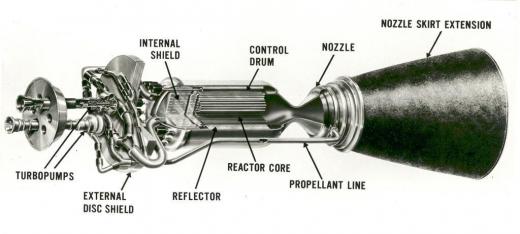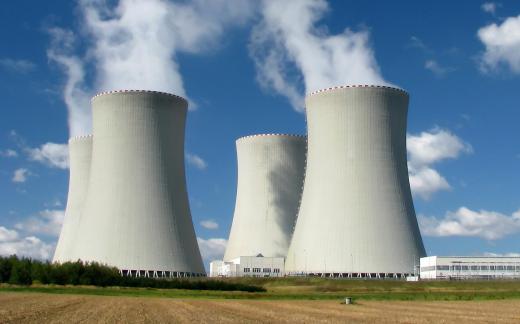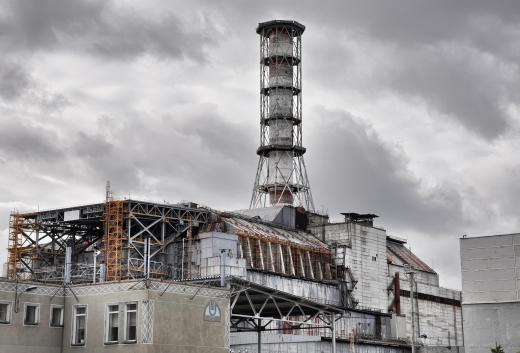What Is Nuclear Energy?
Nuclear energy is simply a term describing any energy associated with atomic reactions. These can be created by people, but they also happen through natural processes. An example of all-natural nuclear energy would be the nuclear fusion process that fuels stars like the sun. In a more practical sense, when most people refer to nuclear energy, they are referring to the human method of harnessing that energy in nuclear power plants. People haven't yet discovered a way to take advantage of nuclear fusion, which could potentially be incredibly powerful and highly efficient—they use the nuclear fission process to create energy instead.
In a sense, nuclear fission is the opposite of nuclear fusion. With the nuclear fission process, tiny little particles are thrown at atoms until they break apart and become smaller atoms. Every time this happens, a little bit of energy is released, and other particles are also released that continue to break apart the smaller atoms. This process goes on and on, creating a domino effect and continually building more and more heat. In nuclear fusion, small atoms come together and bigger atoms are formed, which releases massive quantities of energy.

Mankind uses fission in power plants because it is an easier kind of nuclear energy to control. People have the technology to create fusion as well, and the hydrogen bomb would be an example of that, but there is too much energy involved in fusion reactions, and nobody has found a way to make it safely usable as a power source. Scientists continue to try to unlock the mysteries of controllable fusion reactions.

Nuclear power plants actually work like most other electrical power plants. The heat from the nuclear reaction is used to raise the temperature of water, which generates steam. The power of the steam turns turbines that generate electricity through friction. It's actually not that much different than hydroelectric energy or the way coal power plants work. The big difference is the way the heat is generated.

There is a lot of possible danger in nuclear power plants, but they also have the potential to benefit the environment. On the one hand, a disaster called a meltdown could happen, and many people could be injured or killed, but on the other hand, nuclear power plants don't pollute the air in the same way that coal plants do. Nuclear plants also produce radioactive waste, and finding ways to safely dispose of this waste can be difficult.
AS FEATURED ON:
AS FEATURED ON:
















Discussion Comments
The world needs this but also dos not.
@SilentBlue
It may be that things would change drastically, but I firmly believe that in the long run, it would be for the better. Do we want our children and grandchildren continuing to fight and kill each other in order to sap the world of its oil?
@arod2b42
Perhaps this is a secret that is kept under lockdown for the sake of the economy. Switching to a different kind of energy could cause upheavals in companies and politics around the world. We should probably tread softly when dealing with these matters.
Nuclear energy would be second only to hydrogen energy, which would only generate steam and would have no harm to the environment. This kind of energy would be much longer-lasting than gas, and much less expensive. Probably the only thing that is stopping it from advancing is the fact that people make more money off of selling gas/petrol. However, more people also die for gas/petrol, and the only thing stopping hydrogen energy from advancing is the lack of public awareness of its existence and demand for a large-scale switch.
Nuclear energy would be helpful for two big reasons. I think that switching to a usage of nuclear energy would be safe and sustainable for our environment. There will also be the effect of pulling the oil-power rug out from under the great gas companies and middle eastern regimes.
Post your comments